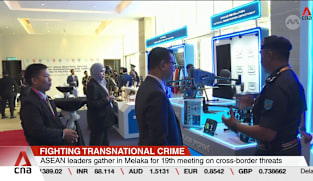Sun Xueling on Protection from Scams Bill
Despite the safeguards and extensive public education efforts, there is still a high number of scams involving self-effected transfers, where people willingly transfer monies to scammers. From January to September 2024, self-effected transfers accounted for 86 per cent of all scam reports and 94 per cent of losses. These include Government official impersonation scams, investment scams and Internet love scams. In these cases, the police and banks have no legal powers to stop the victims from making further transactions. In some of these cases, the victims had appealed to the Government for financial assistance. In such situations, the authorities should have the power to intervene decisively. Minister of State for Home Affairs Sun Xueling highlighted this trend, as she outlined the new powers for the authorities to step in and stem further scam losses. Under the Protection from Scams Bill, officers can issue a Restriction Order (RO) to banks to restrict banking transactions of an individual if there is reason to believe that the money would go to a scammer. Ms Sun said this aims to “buy the police more time” to convince the individual of the scam. The RO will only be issued as a last resort, said Ms Sun. It will be issued to the seven Domestic Systemically Important Banks (DSIBs), which account for the vast majority of consumer bank accounts in Singapore. It will also be issued to a non-DSIB bank if there is reasonable suspicion that the victim will transfer money to a scammer from a non-DSIB account or withdraw money from it to give it to a scammer. Ms Sun said the decision to issue an RO will be made solely by the police based on a holistic assessment of the facts and circumstances of each case. The RO is for a maximum of 30 days at the outset, after which it could be extended up to five times, each lasting 30 days. The initial RO and five potential extensions would last up to 180 days. Ms Sun said the Bill will enable the police to act decisively and close a gap in its arsenal against scams.
Despite the safeguards and extensive public education efforts, there is still a high number of scams involving self-effected transfers, where people willingly transfer monies to scammers. From January to September 2024, self-effected transfers accounted for 86 per cent of all scam reports and 94 per cent of losses. These include Government official impersonation scams, investment scams and Internet love scams. In these cases, the police and banks have no legal powers to stop the victims from making further transactions. In some of these cases, the victims had appealed to the Government for financial assistance. In such situations, the authorities should have the power to intervene decisively. Minister of State for Home Affairs Sun Xueling highlighted this trend, as she outlined the new powers for the authorities to step in and stem further scam losses. Under the Protection from Scams Bill, officers can issue a Restriction Order (RO) to banks to restrict banking transactions of an individual if there is reason to believe that the money would go to a scammer. Ms Sun said this aims to “buy the police more time” to convince the individual of the scam. The RO will only be issued as a last resort, said Ms Sun. It will be issued to the seven Domestic Systemically Important Banks (DSIBs), which account for the vast majority of consumer bank accounts in Singapore. It will also be issued to a non-DSIB bank if there is reasonable suspicion that the victim will transfer money to a scammer from a non-DSIB account or withdraw money from it to give it to a scammer. Ms Sun said the decision to issue an RO will be made solely by the police based on a holistic assessment of the facts and circumstances of each case. The RO is for a maximum of 30 days at the outset, after which it could be extended up to five times, each lasting 30 days. The initial RO and five potential extensions would last up to 180 days. Ms Sun said the Bill will enable the police to act decisively and close a gap in its arsenal against scams.



















